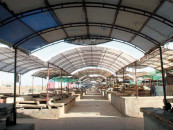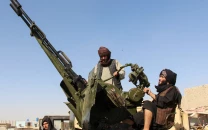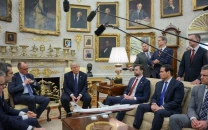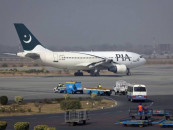Regulating the INGOs
The INGOs need to be kept in check to assess their role nationally

Many INGOs have been in an operational limbo, some have had operations suspended, and crucial human services have been interrupted. That said there is no doubt that corruption existed within the INGO sector and that there were organisations which did indeed have agendas which were questionable if not outright doubtful.
Some clarity has emerged with the announcement by Interior Minister Chaudhry Nisar Ali Khan on Thursday 22nd June that 73 INGOs have been granted permission to operate and undertake a range of humanitarian and socio-economic projects within the country having successfully passed the registration process. A further 23 INGOs were refused permission to operate and another 20 had their cases deferred for a decision at a later date.
Details of those which are approved and those not approved will reportedly be placed on the ministry website. Until that detail is in the public domain it is not possible to comment on the impact in broader terms that the decision will have. It is possible to say however that INGOs fill in the many blanks in the social care and security nets that are so threadbare everywhere. They also work in close collaboration with government agencies and some have decades of successful interventions across a range of needs. Government efforts at registration and regulation have been both ham-fisted and heavy-handed, and there is a suspicion that some INGOs, for instance at least one which works for electoral reform and oversight, finds itself unregistered because its work was something of an embarrassment for this and other governments. The line between registration and suppression is fine indeed.
Published in The Express Tribune, June 24th, 2017.
Like Opinion & Editorial on Facebook, follow @ETOpEd on Twitter to receive all updates on all our daily pieces.















COMMENTS
Comments are moderated and generally will be posted if they are on-topic and not abusive.
For more information, please see our Comments FAQ